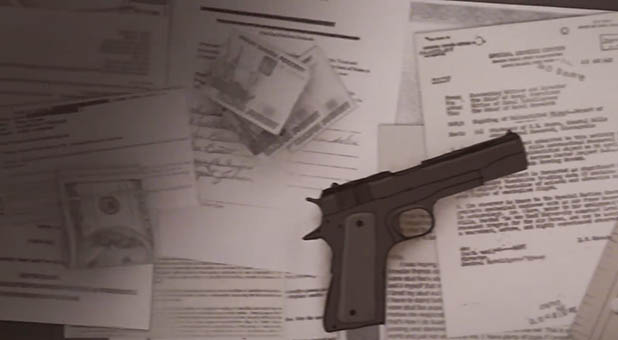The Panama Papers refers to the 11 million leaked files from the Panamanian law firm Mossack Fonseca that shows how some of the richest, most powerful people on the globe use tax havens to hide their wealth.
According to the BBC, this is the biggest document leak in history—dwarfing the size of those released by the Wikileaks organization—and includes details on 214,000 entities, including companies, trusts and foundations. The documents covered day-to-day business at Mossack Fonseca over the past 40 years.
Who is included in the leak?
The leaked documents shows 12 current or former heads of state, at least 60 people linked to current or former world leaders, and 140 politicians from more than 50 countries used Mossack Fonseca to hide their assets.
The list includes the current king of Saudi Arabia, the prime minister of Iceland, the president of the Ukraine, the president of Argentina, and the president of the United Arab Emirates. Also included are a number of former prime ministers from Georgia, Iraq, Jordan, Qatar, Sudan and the Ukraine.
The files also reveal a suspected billion-dollar money-laundering ring involving close associates of Russian President Vladimir Putin.
So far, no American politicians have been associated with the leaked documents.
What do the leaked documents reveal?
According to the International Consortium of Investigative Journalists, the cross-border journalism collaboration that has been reviewing the documents, the leak reveals that:
• Associates of Russian President Vladimir Putin have “secretly shuffled” $2 billion in transactions through banks and shadow companies.
• At least 33 people and companies blacklisted by the U.S. government because of evidence that they’d been involved in wrongdoing, such as doing business with Mexican drug lords, terrorist organizations like Hezbollah or rogue nations like North Korea and Iran have used Mossack Fonseca to hide or transfer assets.
• Major banks have driven the creation of hard-to-trace companies in offshore havens. More than 500 banks their subsidiaries and their branches—including HSBC, UBS and Société Générale—created more than 15,000 offshore companies for their customers through Mossack Fonseca.
What is Mossack Fonseca?
Mossack Fonseca & Co. is a law firm and corporate service provider based in Panama with more than 500 employees in 40 offices worldwide. The company is considered one of the world’s five biggest wholesalers of offshore secrecy. In 2013, the firm had billings of more than $42 million.
What is a tax haven?
As Investopedia explains, a tax haven is a country that offers foreign individuals and businesses little or no tax liability in a politically and economically stable environment. Tax havens also provide little or no financial information to foreign tax authorities, allowing individuals and businesses that are non-citizens or non-residents to take advantage of the countries’ tax regime in order to avoid paying taxes in their home countries.
Roughly 15 percent of countries are tax havens. They tend to be countries that small and relatively affluent. The Republic of Panama is considered one of the most well-established pure tax havens in the Caribbean, notes Investopedia, due to extensive legislation that strictly regulates the country’s offshore jurisdiction and financial services. Panama has no tax treaties with other countries, further protecting the financial privacy of offshore banking clients who are citizens of other nations.
What is wrong with using a tax haven?
While tax havens are often controversial, it is debatable whether it is inherently wrong to shield one’s wealth from a country’s tax system.
Also, although the uses of tax havens have become more sophisticated, it is an ancient practice. As Wikipedia helpfully notes, “The use of differing tax laws between two or more countries to try to mitigate tax liability is probably as old as taxation itself.” A prime example is how, in the early 1700s, American colonies traded from Latin America to avoid British taxes.
What is problematic about tax havens is when corrupt politicians use them to hide wealth that was confiscated from their citizens or when criminals use the system to facilitate fraud, money laundering, terrorism or other criminal practices. The video discusses how corrupt politicians and criminals used Mossack Fonseca to harm others:
Joe Carter is a senior editor at the Acton Institute. Joe also serves as an editor at the The Gospel Coalition, a communications specialist for the Ethics and Religious Liberty Commission of the Southern Baptist Convention, and as an adjunct professor of journalism at Patrick Henry College. He is the co-author of How to Argue like Jesus: Learning Persuasion from History’s Greatest Communicator (Crossway).
See an error in this article?
To contact us or to submit an article





















